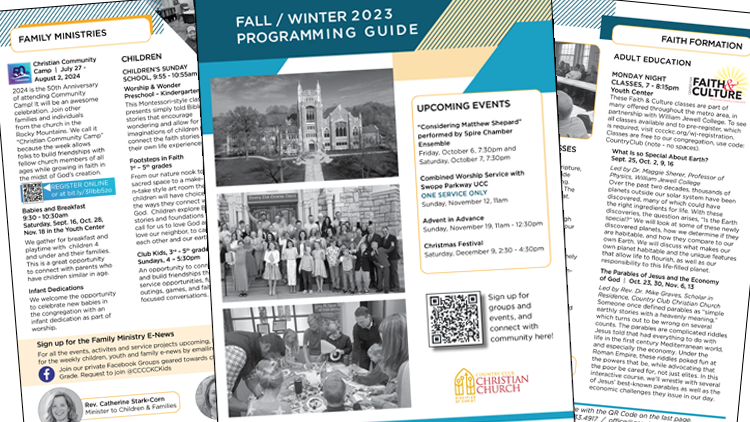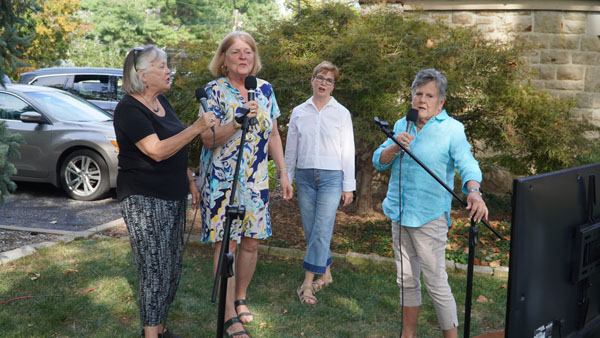A few weeks ago, I listened to an episode of a podcast from author and speaker Rob Bell. The episode, titled “A Bit About Time,” was basically a guided conversation between Rob and his wife, Kristen, in April. They talked about how COVID had adjusted their sense of time and what they thought it meant for how we’re re-learning how to live our lives. It was a super interesting conversation, but one thing in particular stuck out to me.
Bell offered a brief history of three ways in which humanity have thought about time. To pre-historical humanity, time was chaos; it was not a real factor thought about as daily survival was of utmost priority. However, as humanity evolved and became an agricultural species, time emerged as a real dynamic but was understood in terms of seasons. Time was cyclical; each season related to the others, and time circled through spring, summer, fall, and winter. Each season was unique, offering its own challenges and opportunities, and each fits into the greater rhythm of life.
This view of time eventually gave way itself as the world became industrialized and entered the modern era, and humanity adapted to a concept of linear time in which time sits on a line, moving forward, progressing into the future. Bell talked about how linear time has helped us think about where we are headed as humanity and has given us the framework needed for the massive progress we have made in recent centuries, from technological progress to philosophical and social progress. However, Bell described how reducing time to equal units on a calendar obscures the dynamism of time, especially as it was understood through a seasonal framework. He also said that when life becomes disrupted, as all of our lives have this year, we struggle to reconcile what’s happening with the linear progress we assume comes with the passing of time.
Bell argues that we need to reclaim some sense of cyclical time. Linear time obsesses with where we are headed. We ask of moments, “where will this get us?” However, when we think of time in terms of seasons, we can look at both the challenge and opportunity of a moment. In the agricultural world, the season of spring offers the challenge of planting and the opportunity to see new things sprout and take root. Autumn presents the challenging work required to reap one’s crop and the opportunity to feast in fresh abundance. Likewise, each season in our own lives carries both challenge and opportunity.
As we look at the season in which we find ourselves now, we realize its unique challenges. We are anxiously figuring out resuming school amidst a pandemic, we are nervous about what the winter will hold, and we are still wrestling with the contours of our social and personal lives with COVID-19. We miss being with each other without physical distance and masks and limited crowds! How can we reframe our understanding of this time of uncertainty to see not only its challenge but also its opportunity?
Ecclesiastes 3 says that “God has made everything suitable for its time… it is God’s gift that all should eat and drink and take pleasure in all their toil.” God reaches into time, holds us, and invites us to be radically and dynamically present. Paul Tillich, in his book The Eternal Now, says that God, “Who was and is and is to come… gives us courage for what is to come [and] gives us rest in [God’s] eternal Presence.”
This year has been one of which we have struggled to make sense, and we have more questions than answers about where this all is headed. Yet, we cannot rush this year away. May we open ourselves to the divine courage of God’s presence with us in this moment, and may we see both its challenges and its opportunities, walking through time with our God who makes all things new.






